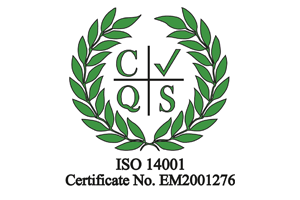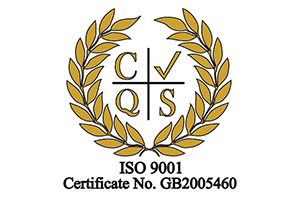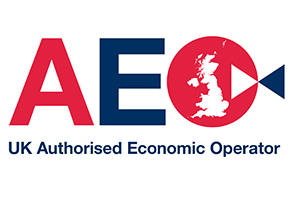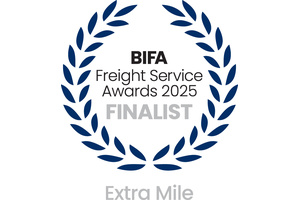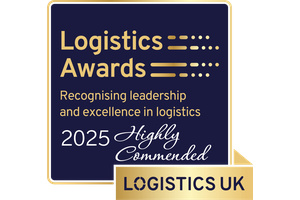The current state and future prospects of the European transport and logistics industry
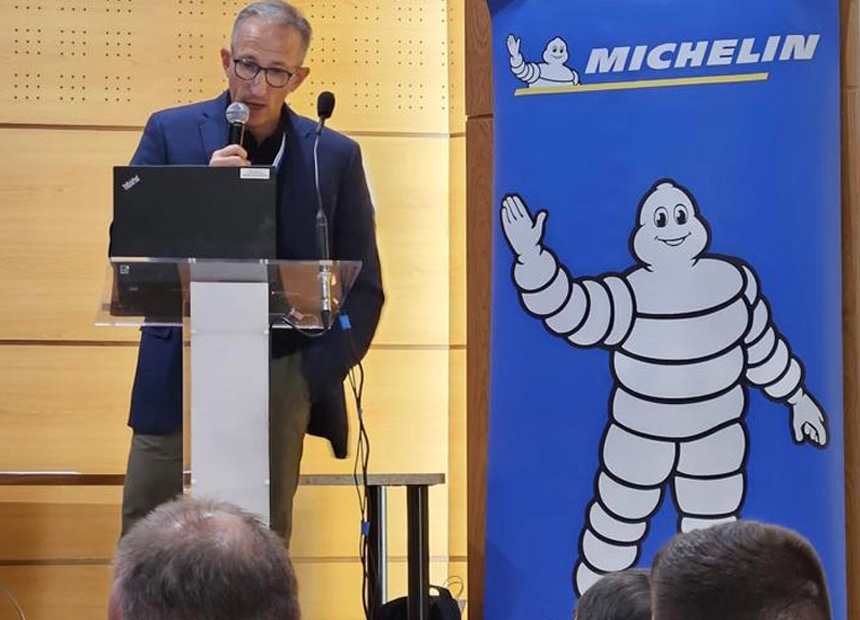
Having recently been invited to speak at the 4th annual European Michelin Carrier Forum in Aranda de Dueró, this inspired me to reflect and take stock of the current state of the European transport and logistics industry.
From my vantage point as CEO of one of the key players in the market, I have been well placed to witness the industry's transformation and the increasing importance of sustainability and global trade.
The European logistics sector is a significant force, contributing €900 billion to the market value and employing 7 million individuals. Its impact on the EU GDP is an impressive 7%, with transport representing half of this figure.
However, recent years have brought unprecedented challenges caused by hugely disruptive events such as the enduring effects of the COVID pandemic, noting that China is only just beginning to recover. Semiconductor shortages, climate change, high inflation in the Eurozone, and geopolitical tensions, notwithstanding a brutal war in Ukraine, have destabilised global supply chains and severely affected the European transport and logistics market.
While we have witnessed declining freight rates and the closure of several transport companies; mergers and acquisitions among major players have taken place. For example, CMA-CGM have now outgrown Maersk with the acquisition of Bolloré and Ceva acquiring Gefco, proves the rule of the survival of the fittest into today’s market place.
Diesel prices have eased somewhat after sustained volatility, however, they remain elevated compared to 2021. Vital capital equipment such as tractor units, trailers and spare parts have become increasingly more expensive with double digit price hikes. The EU Mobility Package has also pushed transport companies to reconsider the countries in which they choose to operate their fleet, which, in turn, has a knock on impact on costs and the environment causing increased empty mileages. The cost-of-living crisis across Europe is also pushing up wage demands in 2023. Furthermore, the Brexit agreement has introduced complexities and increased costs for trade and supply chains between the UK and the EU.
However, amid all the crises and conflicts there is also some good news. After a year-long dispute between the UK and the EU, a solution to the Brexit issue is on the horizon, thanks to a fresh approach agreed around the Irish Sea border and a more business-like relationship between Messrs Macron and Sunak.
The logistics world has now adjusted to the fact that, because of Brexit, the free movement of goods between the EU and the UK has ceased since January 1, 2021. The Brexit agreement has caused many changes for trade and supply chains between the UK and the continent. In short, it has become more expensive and more complicated. Additional costs and time delays must now be factored in for imports and exports, making goods more expensive. In the meantime, the cost of transportation has also risen; not least because many Continental drivers are reticent and, in some cases outright refusing, to carry freight to the UK because of severe delays compared with simpler and more lucrative intra-EU transits.
In the face of these challenges, the logistics industry has displayed resilience, maintaining supply chains even under extreme pressure. However, more obstacles lie ahead, including hurdles in the food segment and potential factory closures in the British automotive sector. For those of us operating in the food segment and in the dairy and meat industry in particular, there are more specific challenges to come. Having postponed four times since 1st January 2021, the UK will no longer be able to avoid the physical control checks of food imports from the 31st of October 2023. From this date, it must comply as a WTO member in parallel with the rest of the EU.
The British automotive sector is not immune from further disruption with the spectres of potential of further factories closures from Stellantis and Jaguar if the UK does not renegotiate key parts of the Brexit deal. In addition, the rules of origin in EV manufacturing are resurfacing that threatens a 10% import duty penalty if conditions are not met.
“The rules state that 45 per cent of the value of an electric vehicle must come from the UK or EU from 2024 to avoid penalties. If the cost of EV manufacturing in the UK becomes uncompetitive and unsustainable, operations will close”. Source: Motor Transport, May 2023
According to EU’s Brexit Chief Marcos Sefcovic, the current deal won’t be renegotiated before 2026.
The war in Ukraine is additionally causing further disruption, with no end in sight. In fact, February 24th, 2023, marked the one year anniversary of Russia’s invasion. While the EU has put its tenth package of sanctions into effect, logistics companies, carriers, and ports are still trying to adjust to the crisis and the restrictions and changes it has brought. New transport routes were quickly established to supply Ukraine with aid and other goods, and as a result, we can state positively, despite the ongoing challenges, logistics is growing to the benefit of people and the economy.
So where do we go from here?
The stagnation in freight demand from Q4 2022 has continued into 2023, flattening the driver shortage curve – for now. But nothing has changed in the long-term outlook of the profession. The proportion of younger drivers remains extremely low. Any jump in demand from European economies will further exacerbate the shortage of drivers, which in turn will limit economic growth. We can’t take our eyes off the ball, and we need to continue pushing for fast structural solutions to driver shortages.
Despite easing on the demand-side, the supply pressures continue to erode capacity and while fuel costs have fallen from their 2022 high, they remain elevated compared to 2021, however, stabilisation might be on the horizon. In any business environment that experiences fluctuations, it is vital to provide consistency in everyday operations and this can be achieved through reliance on trusted partners and modern technology.
Now is an optimal time to bring the benefits of automation into the daily lives of financial services companies, shippers, and carriers. Automation should supplement, not replace, the use of first-class, passionate, and committed people providing great customer service. This is especially relevant given the high-touch nature of the industry and its intensive reliance on administration and back-office operations. Outdated and complex manual processes slow speed to payment and make all parties in the supply chain more vulnerable to fraud. The addition of automation with human oversight will allow for a more frictionless process for all parties involved in the supply chain, while also providing increased protection. The key statistics in summary:
Source: Transport Intelligence, European Transport, Market Size & Growth report: May 2023
So, how do we optimise current trends, anticipate new challenges, and build a stronger European transport and logistics industry?
Infrastructure developments and remove bottlenecks:
Promote policies that recognise the need for flexibility and efficiency across all modes of transport and incentivise transport infrastructure development by the creation of transit corridors throughout Europe. Escalate at the highest level, using the considerable influence of corporate giants, such as Michelin, insisting that the French contribute to the renaissance of intermodal in and through France. Reversing the literal abandonment of intermodal transport by successive governments despite verbal and politically correct commentary.
Logistics is vital to Global Trade:
Campaign to amplify recognition from governments, manufacturers and consumers of the role logistics plays in global trade. At the same time, challenge shippers to review the efficiency of their global transport network and start re-onshoring some of their activities and jobs back to more local markets. This will lead to curbing or even avoiding some of the major disruptions faced over the past 3 years.
Improve Industry Efficiency:
Raise awareness of the importance of efficient global logistics value chains supported by global standards. I strongly believe that this is where we need to find some synergy between transport and logistics partners.
Internal EU market:
Prioritise the completion of the EU internal market for all logistics services, reinforcing an intelligent and sensible level playing field in Europe. Fight back on grossly excessive, and French induced, impairment of driver’s freedom to choose where they can sleep amongst other frustrations.
Reduce Unproductive Administration:
Cut excessive red tape that freight drivers are subjected to, with France guilty of leading the onslaught on EU drivers. Ensure proper enforcement of legislation against corrupt firms, not their drivers! And don’t get me started on how Brexit has enormously added red tape to the movement of freight from the UK to the EU.
Decarbonisation Agenda:
Continue to develop an ambitious decarbonisation agenda. The scale of transformation required to decarbonise our European transport system is unprecedented and very expensive to implement while realistically the climate is already changing. Once again, multimodal through and within Europe and France is a big part of the answer as are development commitments to test and scale sustainable alternatives to fuel taxes and encouraging government agency transparency to build public trust.
Technology Agenda:
Drive innovation and standardisation, promoting automation and introducing industry-wide digital tools while preserving the human factor and partnership between shippers and suppliers.
Cyber Security:
Highlight the importance of interoperability and standards along with increased (cyber) security for efficient logistics services.
In summary, although the industry faces challenges such as supply chain disruptions, driver shortages, and rising costs, we can drive positive change and shape the future of transport and logistics. By embracing innovation, fostering collaboration, and addressing key areas of concern, we can build a resilient and sustainable industry.
Let us navigate these uncertainties together and work towards solutions and a brighter future for the transport and logistics sector.
Recent articles

Efret proud to announce renewal of AEO accreditation
5th February 2026 1 minute read

Efret welcomes Tendron as GB Global bolsters European network
28th January 2026 1 minute read
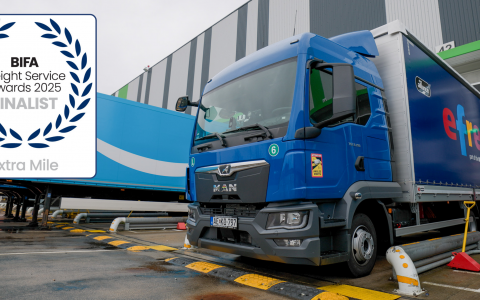
Efret Shortlisted for BIFA ‘Extra Mile’ Award 2025
29th October 2025 2 minute read
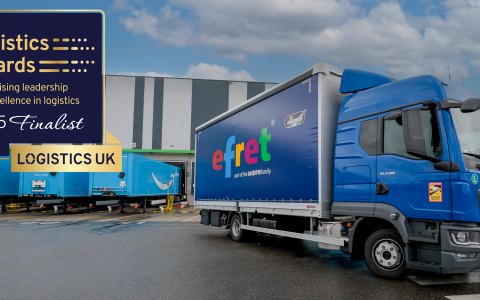
Efret Shortlisted for Van Business of the Year at Logistics UK Awards 2025
20th August 2025 2 minute read

